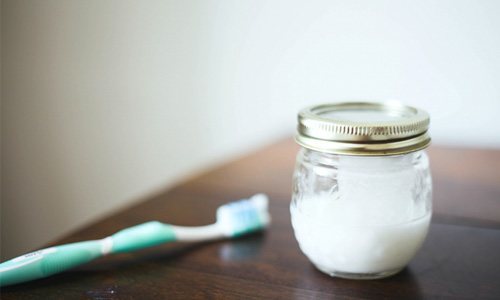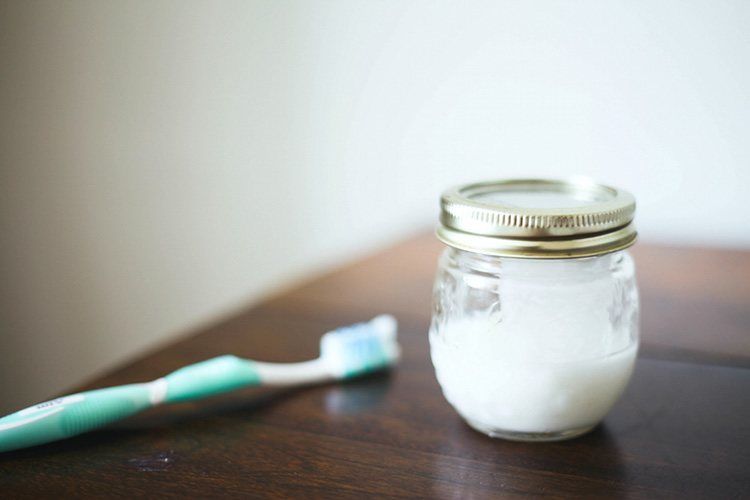

Most health conscious people can admit to carefully looking over the nutritional information and ingredient list on the foods they buy, but how often do they do the same for personal care products?
If your toothpaste contains dangerous ingredients like triclosan, sodium laureth sulfate, glycerin or any artificial sweeteners (including aspartame, sorbitol and saccharin), then you should seriously consider tossing that tube into the trash and going for a much safer, natural alternative that can get the job done just as well as regular toothpaste—if not better.
You could head on over to your local health food store to look for organic toothpastes or you could even conduct some thorough research on the more common brands of toothpaste sold in stores (since not all of them contain toxic ingredients). But if you want to save a bit of money in addition to going all natural with your oral care, you could simply stop using toothpaste all together and instead switch to some of the alternatives listed below.
1. Baking Soda
A study from the Journal of Clinical Dentistry found that Arm & Hammer baking soda was effective at cleaning teeth and removing plaque to fight off tooth decay. You’re probably already well aware of the many toothpastes that actually contain baking soda already. If you can withstand the taste and the grittiness of plain baking soda, you might want to try it.
2. Peroxide
According to WebMD, peroxide can be an effective cleansing solution for your mouth because of its bacteria-killing power, but you have to be ultra careful with it. If you’re going to try this alternative, make sure you dilute the peroxide in water so you’re not brushing with it at full strength, which could potentially burn your gums.
3. Sea Salt
Sea salt is rich in a variety of essential minerals and some people claim that it really helps to whiten their teeth. Try diluting sea salt in water and using it to brush your teeth. If you decide to use straight sea salt (without diluting it) you could risk abrasion.
4. Xylitol
Xylitol is a naturally occurring sugar alcohol that can be found in fruits and vegetables, which is often used as a sugar substitute in some food products. Some research has shown that it may prevent tooth decay, but ultimately more evidence is needed to back this claim up. You can get xylitol as a gum, as lozenges or you can simply take it in its sugar form and swish it around in your mouth prior to brushing.
5. Coconut, Sesame or Sunflower Oil
Have you heard of oil pulling? It’s an ancient oral health technique that involves taking about a tablespoon of carrier oil and swishing it around in your mouth for around 20 minutes a day. Research has shown that it can help reduce plaque and fight gingivitis. Just don’t use this as a complete substitute for brushing–gives those pearly whites a scrub with your toothbrush dipped in water at the very least.
6. Peppermint, Eucalyptus, Cinnamon, Rosemary or Lemon Essential Oil
It’s no secret that essential oils have some seriously great antibacterial properties that make great cleansers for a range of things–including your teeth. When using essential oils, make sure you follow the safety precautions outlined by the National Association for Holistic Aromatherapy. Use a couple of drops of your favorite essential oil in water and brush away.
If you’re going to try any of these natural oral care alternatives in place of regular toothpaste, make sure to treat it like toothpaste by not swallowing it. Spit it right out when you’re done and give your mouth a good rinse.
Talk to your dentist first about any concerns you may have. If you find a natural solution you really like that works well for you and your oral health, you may never go back to regular old toothpaste ever again.
YOU MIGHT ALSO LIKE
7 Foods That Keep You From Overeating
What You Should Eat to Balance Your pH and Alkalize Your Body

 233k
233k  41k
41k  Subscribe
Subscribe 
